October 27, 2014
How Net Neutrality Affects You and Your Access to the Internet
The Internet began as a way to send information from one person’s computer to another’s. The concept of net neutrality offers an equal pipeline of sending that information out to the users of the Internet. A recent proposal before the Federal Communications Commission would disrupt net neutrality and affect your access to the Web.
Under the proposal, Internet Service Providers, or ISPs, would be able to charge consumers for what they use the Internet for as opposed to the period of time that you use the Internet. Fans of streaming TV shows on Netflix, funny clips on YouTube, and music on Pandora, this affects you.
If ISPs get their way, a change to net neutrality could slow down your Internet access and block content if a user cannot pay for it. This new proposal would vastly change the user’s experience browsing the Web. Web sites will be charged more for using up data and extra charges could be passed on to users.
As of this month some of the big ISPs, like Verizon and Comcast, are grappling with how to change access to the Internet, according to the ACLU.org.
Up to now, the Web has been neutral, or accessible to all with a connection. The Internet doesn’t pick favorites. The routers, physical cables, switches, servers and software that run the Internet treat every bite of data the same.
In a January 2014 ruling the US court of appeals in the District of Columbia said that the rules that have been in place for years are no longer valid. ISPs can give better quality access to the highest paying Websites, so their connections run smoother than others. For consumers, the ruling could usher in an era of tiered Internet service, in which they access content at various levels of speed.
This could put a halt to any type of new Web sites trying to elbow their way into the Internet because they may simply not have enough money to keep up with the ‘big boys.’ This will cease creativity in our Web-based world, as no one will be able to compete with mega-success Web sites, or their wallets.
If the FCC allows ISPs to charge extra money for better quality access, the playing field of free speech is no longer equal. Those with the money to pay for special treatment could broadcast their opinions more easily than their opponents. Those without as many resources could be relegated to the Internet slow lane.
Recently, the FCC opened a public forum to discuss net neutrality. More than 3.7 million Americans have defended of net neutrality, with less than one percent opposed to it, according to a report from NPR.org.
The FCC is in the process of hearing both sides of the issue and will likely have a firm decision on the matter by the end of the year.
October 9, 2014
#SaveOurShow
Clear eyes, full hearts, can’t lose. The rallying cry of the Dillon Panthers football team was repeated almost every week as millions of viewers watched them face off week after week on NBC’s “Friday Night Lights”.
Set in Dillon, Texas the show battled topics such as family values, infidelity, school funding, racism, drugs, divorce, abortion and lack of economic opportunities…and of course one rural Texas town’s intense love of football.
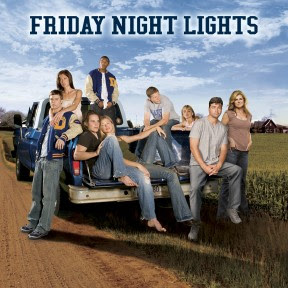 Every week fans watched as the main protagonist, Coach Eric Taylor, kept both his family in line as well as his team in a vibrantly real portrayal of Middle America.
Every week fans watched as the main protagonist, Coach Eric Taylor, kept both his family in line as well as his team in a vibrantly real portrayal of Middle America.
Over two seasons viewers got to know, and care for, a variety of characters that felt more like old friends from high school than a cast of actors.
Star quarterback Jason Street, paralyzed during a game in the series premier who we watch grown and adjust to life with paralysis, Matt Saracen, a shy, humble student who takes care of his grandmother from sun up to sun down who has to step up in Jason’s absence, Brian “Smash” Williams, a cocky running back who wasn’t as cocky when we see him back home in the ghetto dealing with impoverishment, Tami Taylor, coaches wife who is much more than just a trophy wife who doles out invaluable advice to both her family and students at Dillon High School as the schools guidance counselor. The list goes on and on.
These people were more than just characters; to many viewers they were family. “You don’t even need to like football to like Friday Night Lights” super fan Brian Duffy assures. “The show has a lot to do with football, yeah, but it’s the writing and how all these emotions that are had by the characters are emotions that we all have in our best moments and our worst. It is the most real portrayal of high school and family life I have seen on network TV.”
Due to The Writers Guild of America Strike of 2007-2008 the second season of the show was reduced to 15 episodes from the usual 22. Huge with critics, but not with viewers, NBC took this shortened season as possibly an omen to cut their losses and let “Friday Night Lights” drift into the sunset. That is until fans got word of NBC’s plans.
Online petitions sprouted up urging NBC not to cancel such a beloved show. Fans pulled together through Facebook groups and e-mail campaigns to rally together like never before for a canceled show. Fans searched for a symbol that they could send to the network to show their support, so they sent light bulbs and eye drops to NBC, working off of the Panthers chant of “Clear eyes, Full hearts, Can’t lose.”
The show went on to air another 3 seasons on the DirecTV channel, with reruns airing later on NBC. Ever greedy, upon the series finally fans began another petition for a sixth season for the show, which was then altered into a petition for a feature length movie.
The status on the movie is still unclear but what is clear is the power of fans in numbers. Like never before fans were able to rally together and show a network that they mean business, and that is all possible because of the internets power to connect not only family and friends and business partners and lovers…but fans.
The ‘Comeback’ of the year
In the past online petitions and movements to bring back cancelled shows usually began around the winter before the seasons were coming to an end. Fans would break word on various blogs and organize meet ups and campaigns to bring back the shows, and characters, they loved.
There were a lot of successes like CBS’s post-apocalyptic drama “Jericho”. Fans went ‘nuts’ over its cancelation and sent, yeah you guessed it, nuts to network offices in New York and Los Angeles. The NBC comedy “Chuck” was saved after countless users changed their avatars and Twitter icons pictures of the cast and #savechuck could be seen on many fans Facebook pages and Twitters. That ultimately bought the show another few seasons.
The most popular instance of a show being brought back after online interference is probably FOX’s “Family Guy” which went on to become one of the most successful comedies of all time…and is still airing. Another success is FOX’s critically acclaimed comedy “Arrested Development”.
After fans became irate over a show that was on almost every critics ‘Best’ lists was canceled they petitioned furiously for another season. In a then unusual move another season of the show was picked up not by FOX but by the streaming pay service NETFLIX.
One of the most unusual cases of revival will be seen next month as a show that lasted one season on HBO in 2005 returns for its second season, almost a decade later. “The Comeback” stars Lisa Kudrow as a former television star who has a reality TV crew filming her comeback to network TV. It was a show a few years ahead of its time as it took the new world of reality TV and made fun of it in an awkward, heartwarming, and cringe worthy way.
 Viewers hated that they loved watching Kudrow’s character, Valerie Cherish, in the most awkward collection of life’s moments. Cameras followed her as she went up for roles in TV shows only to be turned down or asked to play a more matronly, older character.
Viewers hated that they loved watching Kudrow’s character, Valerie Cherish, in the most awkward collection of life’s moments. Cameras followed her as she went up for roles in TV shows only to be turned down or asked to play a more matronly, older character.
She would bring home baked goods to writers on TV shows only to watch them throw them away right in front of her. Valerie would just turn to the camera and make the best of things with a little quip like “Well I guess they had a big lunch”; all while you knew a part of her was dying inside.
Fans loved Kudrows character and pleaded with network brass and here we are now. It also didn’t hurt that the show was still watched heavily on demand while other more ‘popular’ shows in HBO’s Rolodex fell to the wayside in second, and third (and on) viewings.
One fan on a “The Comeback” message board, “ANDand10”, wrote “This is the best news ever and a good reason for a rewatch. I DO WANT TO SEE THAT”, referring to the main characters catch phrase of “I don’t need to see that!”. Another user, “Powers”, wrote “I loved every cringeworthy moment of this show and am glad to hear it’s coming back.”
“The Comebacks” hiatus of almost a decade felt like an unbreakable record for any show to beat. That is until a quarter century old fan favorite was revealed to be gearing up for production last week.
“Twin Peaks” aired on ABC from 1990-1991 and was the perfect TV noir presentation of a small town soap opera involving the murder of a beautiful cheerleader and the crazy cast of characters that made up the suspects and those who were suspicious.
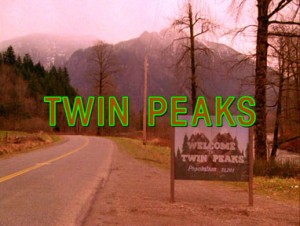 The show kept viewers on the edge of their seats for two seasons until the identity of the murderer was revealed and the series lost its steam…and most of it viewers.
The show kept viewers on the edge of their seats for two seasons until the identity of the murderer was revealed and the series lost its steam…and most of it viewers.
The show has lived on in the fleet of fans that have watched, and re-watched the series for years and hold it in high regard as one of the finest shows on television. That has urged creators to resurrect the show for a limited run, third season, set to air in 2016 on cabel channel Showtime.
Voice of the People
 Online message boards and petitions have proved a new voice in a world where TV shows would go off the air and one would wonder “I guess no one else watched”.
Online message boards and petitions have proved a new voice in a world where TV shows would go off the air and one would wonder “I guess no one else watched”.
Now there is a place for fans to go and share their love for shows. Online petitions and the use of different trending hashtags and Twitter handles are now common weapons in the fight to bring back beloved shows.
The whole idea of fans being able to rally together and bring back a show is revolutionary. In several years will hashtags and trending topics and Facebook likes be more important to advertisers than ratings? Only time will tell, hopefully, if they’re lucky, you will get to see some of your favorite characters again…even if it takes a few decades.
October 2, 2014
The grass isn’t always greener on the other side…but it doesn’t hurt to take a little peak over the fence and see what’s going on over there, at least according to Mark Briggs. An idea that someone may have done well with could always go maybe just a little bit further with a fresh set of eyes.
Growing up I was always taught that cheating was wrong. You can’t really get ahead in life if you don’t get there on your own. That has been a saying in the back of my head since I was very young. Spelling tests, little league, student council elections, girlfriends…cheating was always off limits.
What surprised me about Mark Briggs was that he openly suggested to cheat; in so many words. Now the ‘cheating’ I am referring to isn’t exactly universally looked upon as cheating, more so as ‘investigating your competition’. Whatever you want to call it, it seems like cheating to me; but if it is not frowned upon, that’s just fine in my book.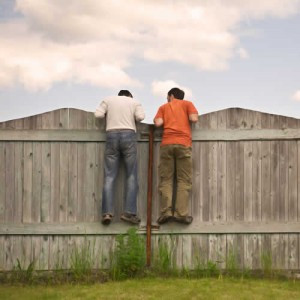
Basically if you have an idea for something, in this case a website, take a look at other likewise websites and work off of what they are doing well, and what they are not. Now this may not seem as treacherous as peaking over the desk to your neighbor during the SAT’S but it is still working off others work.
Business is a savage, cutthroat world where in many instances if you’re not first, you’re last. You often have to take advantage of what you can, at any cost. If something gets you off to a quick start, why not use it. Briggs points to these little tips as ways to successfully start a website.
Poynter suggests that a key to creating a successful website is to start small and build up. Seems simple enough but so many people feel that they have to encompass so many areas on their website that they might cause their audience to feel overwhelmed, or even too inundated with information.
There are countless examples of websites that have succeeded as well as websites that have not. One website that I feel is really interesting is Barstool Sports. It is basically the go-to blog for men of really any age, as we all know men truly never grow up.
 The website offers top news stories in various areas but mainly sports. The site has sections that include viral videos, sports recaps, merchandise, radio podcasts, forums and to top it all off they showcase different ‘smokeshows’ of the week, which are basically a collection of various good looking college girls. Did I mention men never truly grow up?
The website offers top news stories in various areas but mainly sports. The site has sections that include viral videos, sports recaps, merchandise, radio podcasts, forums and to top it all off they showcase different ‘smokeshows’ of the week, which are basically a collection of various good looking college girls. Did I mention men never truly grow up?
All kidding aside the website really offers a lot of valid information for sports fans around the country and news related to various subjects in the world of sports on top of all the fluff. It has different homepages localizing the news to your own area of the country but still includes the top news stories on each of the pages.
The ability to share stories and link easily to Twitter or Facebook allows the website to share their content in quick, concise ways. This allows Barstool to keep the attention of fickle Internet audiences in a world where there are thousands of areas of competition.
My goal in all of this is to do like the wise Mark Briggs says and take an idea and see what else is out there and work on what worked out and figure out what didn’t. I’m sure Barstool was originally based off of some local sports blogs but with the right writers and subsections it has succeeded.
Hopefully one day I will be able to hit ‘go’ and launch my own successful website. The ideas and themes are swirling around my head and I’m not sure exactly what I want to do and what direction I will ultimately go in but I know I will succeed if I do my research. Until then I will keep researching…and peeking over the fence, seeing what the guy next door is up to.
September 25, 2014
I remember being 15-years-old and having my stomach turn as the bus I was riding in carried me from safe, quiet, Bergen County into the ‘mean streets’ of Manhattan. My friends and I rode the 34A bus into New York that left from the local Wendy’s parking lot for a day of fun, rebellion, mischief, hilarity, sightseeing, and friendship…all without adult supervision.
We had the trip mapped out for weeks, and when I say trip I mean the time the bus picked us up in Jersey, and the time it left to come home from New York. We decided on very risky stops like Times Square and, well, anywhere else within 10 blocks of the Port Authority.
It was out first ‘trip’ away without parents. Coming from Bergen County we were all in and out of Manhattan so many times that we really probably could have known our way around without maps, at least to the tourist trap areas 15-year-olds would want to see.

We were all so nervous after hearing stories of muggings and murder our whole life, and now traversing this area without our parents heightened our stresses. We stared down everyone who didn’t match our skin color and reveled when we stepped foot in each Starbucks for a bathroom break.
Our harrowing journey to Toys R Us, The Empire State Building, Bubba Gump Shrimp Company, and TGI Fridays for lunch came to a very anti-climatic end. We boarded the 7:10 bus back home and reveled in our mischievous trip, which our parents would never know about.
I tell this story to put a little light on what it is like for an average, upper-middle class child living in Bergen County, New Jersey. What we saw as harrowing and adventurous would be a literal walk in the park for a boy like Enrique of Enrique’s Journey.
 Reporter Sonia Nazario rode on the same roofs of trains, and made the same trek up north through the coast of Mexico that her subject made. This young man took it upon himself to travel from Honduras, up through Central America and into The United States to be reunited with his family.
Reporter Sonia Nazario rode on the same roofs of trains, and made the same trek up north through the coast of Mexico that her subject made. This young man took it upon himself to travel from Honduras, up through Central America and into The United States to be reunited with his family.
This real harrowing journey was completed by a 17-year-old boy named Enrique who braved the elements and risked his own safety to be with his family, something that I know I have taken for granted many, many times.
The dangerous odyssey was part of a piece Ms. Nazario wrote for The Los Angeles Times that was then complied into a book. She subsequently won the Pulitzer Prize for her work and uses the story as a lesson in both journalistic capabilities as well as a way to spotlight the plight of immigrants in our country.
The topic is such a hot button issue now as immigration, especially undocumented minors, is heavily discussed in the news. Just two months ago a report stated that over 30,000 child-immigrants were placed in various areas of The United States.
The report states that 1,500 children, who were in the US illegally, were placed with sponsor families in our very own state of New Jersey. Sponsor families have the responsibly to bring the minors to scheduled court dates and immigration hearings. Each family is usually somehow related to the minor so as to ease the transition.
The website of Enrique’s Journey showcases the story for anyone who wants a quick summary of the major points of Ms. Nazarios work. The site also offers links that offer more information on the subject of immigration and how you could help undocumented minors. There is even a link for scheduled events, making this a very interactive website that shows Ms. Nazario has really put her entire heart into this project.
Enrique’s story is one that makes you reconsider what you think is scary in life. I was someone who was nervous about a bus ride into Manhattan. A bus ride. Into Manhattan. It seems funny now and makes you appreciate what you have in life; from good schools, to safety in your community, to a roof over your head, to good nutrition, and even just a family by your side.
September 18, 2014
Forbes is a company that finally realized they are in a game of catch up. They are not alone. Many news organizations did not catch the Internet train years ago and are ruing the day they thought of the Internet as a “fad” that wouldn’t last. The popularity of online news rapidly increases while print journalism is on a steady decline.
Every few years we see some new contraption that can fit inside your pocket, or even on your wrist, that tells you all the top stories of the day. You can get all the information you want to know before you get to the end of your driveway to pick up your print copy of the same stories. Usually those same print stories are ‘old news’ by the time you read them anyway.
News organizations like Forbes now have to play a serious game of catch-up, and they know it. They have implemented practices of encouraging their reporters to use social media to allow stories the opportunity to trend and gain traction online. This is a step in the right direction, but maybe a little too late.
When it comes to creating and marketing websites, Mark Briggs stresses quality over quantity. That is the big picture idea that I took away from the readings. You may have a great website with many different sections on various topics but at the end of the day if the content isn’t appealing or attractive, the website won’t bring visitors.
The ‘throw spaghetti at the wall and see what sticks’ model is actually the way to go, as Briggs says. You see what works and see what doesn’t. Tweak it a little, then try again. Keep trying until you are happy and the audience is happy. This is true in a lot of areas in life but more so in the fickle world of the Internet where your audience wants to feel included, as apposed to preached to.
 Jonah Peretti started the website BuzzFeed in 2006 as a ‘viral lab’ where staff would upload Do It Yourself tutorials, quizzes, interesting facts, viral videos, and staff commentary on social issues and politics. Before long the website was visited by 30 million visitors a month.
Jonah Peretti started the website BuzzFeed in 2006 as a ‘viral lab’ where staff would upload Do It Yourself tutorials, quizzes, interesting facts, viral videos, and staff commentary on social issues and politics. Before long the website was visited by 30 million visitors a month.
What BuzzFeed does tremendously is the fact that they have many subsections but advertise them all equally so not to become just one type of site. Niche sites are important, as Briggs says, but I believe the fact that BuzzFeed is SO varied is a niche into itself.
Every topic featured is fun, mildly inappropriate, engaging, topical, and something that people want to spend five to ten minutes of their day staring at. If you don’t agree, go ahead and scroll through your newsfeed right now. You will be inundated with BuzzFeed articles, clips, and videos that are shared by the million.
The beauty of BuzzFeed is they are a journalistic website without you even knowing it. Showcased right between ’50 Things You Didn’t Know About Sex and The City’ and how the ‘2014 VMAs Were Officially Sponsored By Butts’ is a story about the Scottish independence and the impending vote for secession. The story is attractive and looks interesting enough that before you know it you have gained information that you thought you previously would not care to know about, at least I did.
What I took away most from Briggs was the idea that it is OK to fail. It is OK to put your heart into something. It is also OK to have it come back broken, because if it’s a good idea and you are smart enough and work hard enough it will work out and pay off in the end.
September 11, 2014
Over the past 25 years since the advent of the Internet everyone born has had a different, although only slightly, introduction to this marvel that seems to encompass every area of our lives. I was born a few months before the Internet began, so I was able to grow and adapt to this ever-changing software where as my older siblings were finally learning something at the same time that I was.
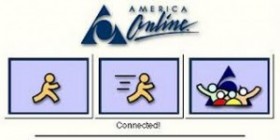 It was exciting to have to tell my older brother that he had to wait patiently as the little yellow man made his way across the three different sections of the AOL log in screen. It was sweet to show my mother that she can simply click on the letter icon in the top corner and put in her brothers email address and be able to contact him anytime day or night as he traveled the seas as a captain in the Navy.
It was exciting to have to tell my older brother that he had to wait patiently as the little yellow man made his way across the three different sections of the AOL log in screen. It was sweet to show my mother that she can simply click on the letter icon in the top corner and put in her brothers email address and be able to contact him anytime day or night as he traveled the seas as a captain in the Navy.
The Internet allowed introverts to act as extroverts behind the guise of avatars or screen names. News was being transported from one area of the world to another in a moments notice, connecting millions and allowing the world to be linked in ways it has never been linked before. We were able to join chat rooms and fan clubs and play games and read the news of the day, all simultaneously even.
By the time I was 12, and the Internet was being shoveled into our homes on big AOL 6.whatever version software CDs. I was able to really grasp the medium and began to really embrace it, although the speed and waiting and waiting and waiting began to really get to me after the initial WOW factor wore off. It interested me to be able to find out any bit of information in the snap of a finger…well at that time it was more like the snap of 15 fingers, but you get the point. It was faster and more convenient than a lot of other sources of information and so public yet so personal. It was something no one ever encountered before.
What we had also never really encountered before met us on September 11, 2001. Terrorism and Al Qaeda and Osama Bin Laden and Afghanistan were words and phrases that had not really been in the lexicon of American culture, at least not well enough that you would know who or what any of that was without really looking into it.
The Internet played a big part in 9/11 coverage but not as big as if the events of that day had occurred when the Internet was really up to great speeds like it developed into just a few years later. The snap of the finger technology didn’t exactly come into play until I was in the later part of my teens. When high speed Internet became available and MySpace and Facebook began popping up while I was in High School it seemed like what had wowed us just a few years earlier was now child’s play
As written about in an article from The Washington Post titled “How the Internet Broke on 9/11” It brings back the memories of how this ever frustrating medium that would lose connection or load at a snails pace became unusable that day. The importance of what had transpired forced people off the Internet so as to get true up to the minute news by staying glued to CNN or FOX or any of the local stations, especially in the Metro New York area.
I can only imagine if smartphones and high speed Internet were available during that time. What kind of calls to loved ones saying their final goodbyes could have been placed? What kind of goodbyes on Facebook would have been posted from passengers on the fatal flights of that day? What pictures from inside the towers could have been taken that weren’t? What connections could have been made that weren’t?
It seems silly and maybe even stupid to bring this point up but for me it’s slightly angering and sad that this high-speed influx of technology was only a year or two away from being available. It would have made all the different to thousands of people and families. Its frustrating but we also have to count our blessings that cell phone service was strong enough so that calls could have been made at all.
I feel a big positive to the Internet not being really up to speed is that it brought us all together for the last time. I remember everyone being huddled around their TV’s in their living rooms where as now you would probably be sitting in your room with your laptop in front of you and the TV on. It was just the last bit of innocence of ‘old America’ before we ushered in this new age of super connection while doing so solitarily.
There are good and bad aspects of every new medium and we are still figuring out this fascinating ‘new’ one we know as Internet. Arguments can be made that is sets people off to be alone while others claim it is the most inclusive, connected form of communication we have ever seen. My hope, at the end of the day, is that the togetherness of America that was felt on that sad day 13 years ago is felt again in times when we really need it.
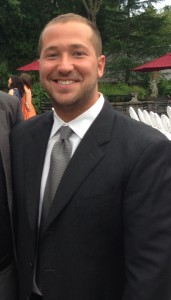

I found the way you wrote your column as a personal account definitely drew me in to want to read more. The way that you used both sides to show family time not being as precious with the Internet in existence and compared it to the way the country and family members huddled around the TV during the World Trade Center tragedy on 9/11. They didn’t have as many mediums to fall back on to pay attention to the situation at hand. Where would the world be without the Internet today, and what could have been done in times like 9/11 if social media did exist?
Your column about Enrique’s journey was really well written. I liked how you started with a story about your own adventure and then transitioned it to Enrique’s. It really made your points about Enrique’s valid.Immigration is a big factor in today’s society and you really were able to get that point across to your reader.